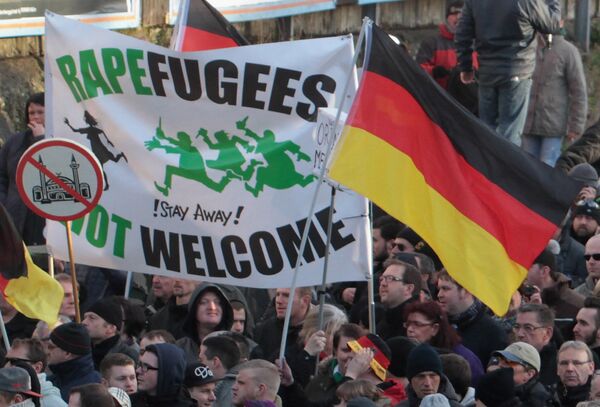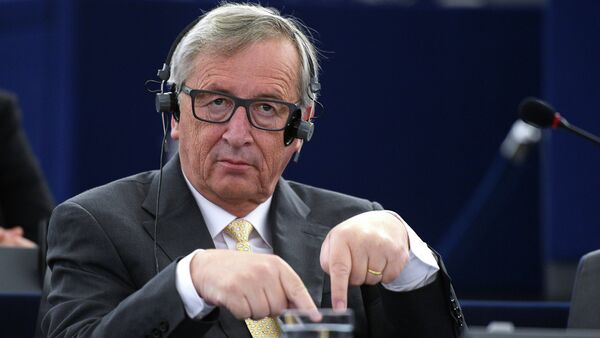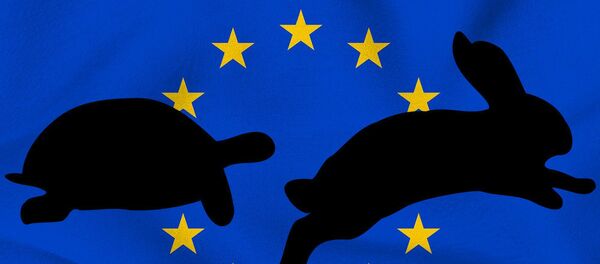Juncker and his team have been working on a white paper on the future of the post-Brexit EU27, and was hoping to present his vision of Europe at the Heads of State or Government meeting, March 25 in Rome, to mark the 60th Anniversary of the signature of the Treaties of Rome, which laid the foundations for the European Union.
.@JunckerEU @LaChambreBE "We should be more proud of Europe's achievements: #EU created peace,biggest single market&strong single currency" pic.twitter.com/pG6bhoUsy4
— European Commission (@EU_Commission) 21 February 2017
It was due to build on the consensus reached at the informal Bratislava Summit in September 2016 by the EU-27 Member States. The key points were to regain full control of external borders, ensure internal security and fighting terrorism, strengthen EU cooperation on external security and defense, boost the single market and offer better opportunities for young people in the EU.
However, sources in Brussels have told Sputnik he has had to postpone his white paper — under pressure from some EU leaders — and it may not see the light of day until December.
Election Fears
At the heart of the problem are the three upcoming elections in the Netherlands (March 15), France (April/May) and Germany (September 24), which have been dominated by rising nationalism in response to the European migrant crisis, the threat from terrorism and Islamophobia.

The issue of border control has become intensely sensitive across Europe, ever since the vast influx of migrants exposed the security failure of the Schengen open-borders system. Controversial plans by Juncker's team to distribute migrants throughout the EU on a mandatory quota basis have met with fierce resistance in many countries.
If Juncker were to launch his vision for a new EU — which involves a "political commission," as he put it in his state of the union address, September 2016 — and one which strives for even closer union, it would put him at odds with some member states — notably Germany, where Chancellor Angela Merkel is pushing for a multi-speed EU. It would also stoke-up anti-EU sentiment, which is already on the rise.
Moreover, the Merkel-Juncker relationship has turned chilly after the commission president warned that Britain would have to pay a "hefty" price for leaving the EU.
"Our British friends need to know — and they know it already — that it will not be cut-price or zero-cost. The British will have to respect the commitments which they played a part in agreeing. Therefore, the bill will be — to use a rather vulgar term — very hefty. It will be necessary for the British to respect commitments which they freely entered into," Juncker told the Belgian parliament.
However, in a sign that Berlin was unhappy with this threat — ahead of Britain triggering the formal method of leaving the EU — Stephan Mayer, a member of the German Parliament for Merkel's sister CSU party, told the BBC that while Brexit would be "expensive for both the UK and the EU", much would depend on which EU program the UK continued to participate in.
"I am not so happy with this aggressive line. I am convinced that Germany has a special interest in stable and good relationships with the UK. I fear in a certain way that this harsh pressure, which is put by the European Commission on the UK, is not in Germany's interests," he told BBC Radio 4's Today program.
Juncker's vision for a new EU will now have to be put on hold until the Dutch, French and German elections are over and the Brexit talks have begun. By that time, his white paper may well be out of date. Or Juncker might even be out of a job, if media reports of his demise are to be believed.



